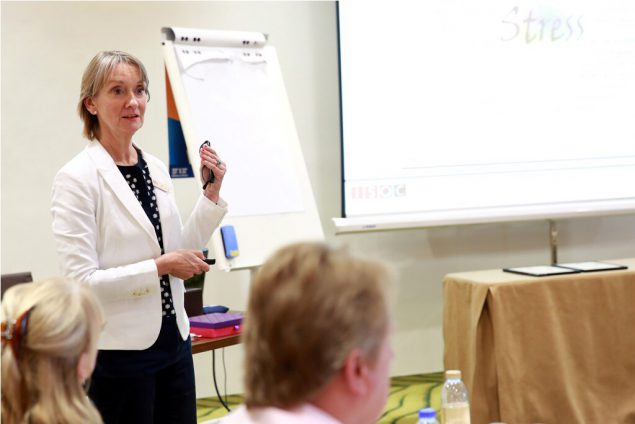Sorting the basics – working overseas


Director of Coaching and Mentoring
British School of Coaching
When colleagues say they are working overseas it can seem exciting to those who are back at base or maybe delighted they aren’t travelling at all! Over the years we have discovered how much preparation is needed to ensure they will “hit the ground running”.
If at all possible on their first assignment abroad they will be supported by a named colleague who is based in the location or is experienced in working there. Prior to travel we go through a cultural awareness session led by a colleague experienced in working in that location and with an understanding of cultural norms which set expectations about behaviour and working relationships so that the individual can avoid putting themselves in any awkward or difficult situations and can represent the business professionally and with confidence.
This session includes practical advice and information for colleagues, both in business situations and during personal time. Our top tips include:
- Take a copy of any prescriptions for medicines which you are taking;
- Ensure you have an adequate supply of prescribed medications with you, ensure you are up-to-date with any required or recommended vaccinations;
- Take a photocopy of your passport with you and keep it with you at all times along with uploading it to the Cloud, whilst the original is kept in the hotel safe (unless the country requires you to keep the original with you as the equivalent to an identity card). When visiting a business, security will typically ask you to leave photo ID at reception, so best to leave a driving licence or gym membership than passport;
- Information about the layout of the airport on arrival and procedures to follow, e.g. do you need to buy a visa on entry;
- The country’s dress code – for example in the Middle East modest dress is a clear expectation everywhere except by hotel swimming pools or in hotel gyms. This applies to both men and women;
- Behaviour in public and private. It’s best to follow or mirror the behaviour of local people. Again, using the Middle East as an example, never take the lead in shaking hands with a member of the opposite sex at business introductions or meetings, even if this would be expected or acceptable in the UK. Physical signs of affection between couples in public are unacceptable, even between married couples;
- Be aware the behaviour which is legal in the UK can be totally unacceptable elsewhere;
- Some drugs which are used (with or without prescription) in the UK may be unacceptable elsewhere – e.g. codeine or other morphine derivatives. Where behaviour is illegal in both the UK and the country of your assignment (e.g. possession or use of illegal drugs) penalties can be a great deal harsher in other countries than in the UK;
- Colleagues must leave a copy of the photograph page of their passport in the office prior to travelling outside the UK on our behalf.
Prior to departure, checks are made with the Foreign and Commonwealth Office (FCO) website which is a source of information about any specific risks associated with the country where the assignment is based. The website of the country itself will also provide relevant information. If there is any evidence of risk the assignment will be cancelled. Contact details for the relevant British Embassy or Consulate are also available on the FCO website. In the event of any risk developing once the assignment has commenced all colleagues are expected to follow the FCO guidance and leave the country or contact the British Embassy or Consulate as appropriate.
When colleagues return to the UK from an international assignment, they are expected to attend a debrief where any concerns can be discussed and support and guidance given as necessary. If any concerns arise which we had not identified, we will ensure that colleagues going on future assignments are alerted to the issues identified.
Our priority is that our colleagues keep safe, feel confident working in different cultures and have a positive and enhancing experience whilst working internationally – this benefits clients and colleagues alike. It also makes sound business sense to ensure that our international reputation is enhanced, that clients are not offended or embarrassed and that a professional and competent impression is left with all those who come into contact with members of our team, whether in a business or leisure setting.
Taking care of the basics ensures we are free to focus on delivering the work.
Safe and successful travels!
Next week I will be writing about keeping safe when working alone – which is equally relevant for colleagues working internationally and in the UK.
Judith M Barton,
MSc, BA, Chartered FCIPD, MCMI, MInstLM, MIoD, EMCC Member, Coach & Coach Supervisor
Director of Coaching & Mentoring






